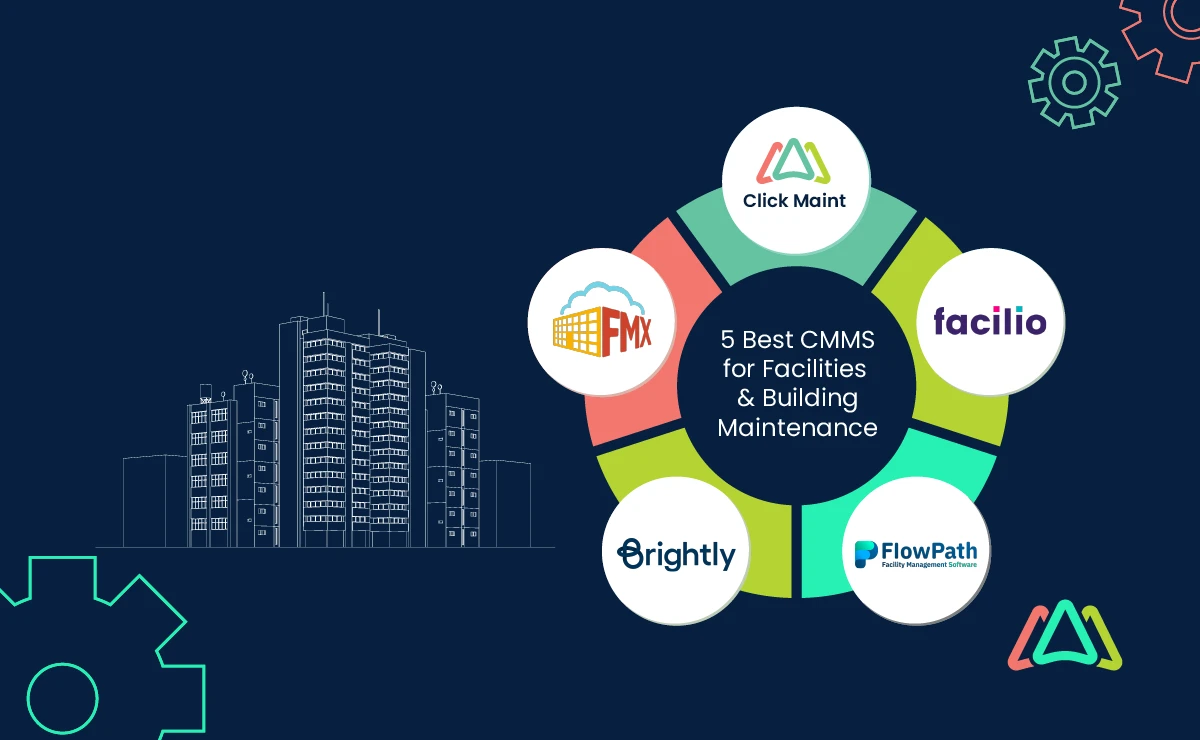Finest Practices in Facility Management for Modern Organizations
Finest Practices in Facility Management for Modern Organizations
Blog Article
Key Trends Forming the Future of Center Administration in 2024
As we look in advance to 2024, the landscape of center administration is positioned for considerable makeover, driven by numerous crucial fads. The integration of wise structure modern technologies and a change towards data-driven decision-making promise to improve operational effectiveness while focusing on sustainability in technique.
Smart Structure Technologies

Smart structure technologies include a broad range of systems, consisting of intelligent lighting, cooling and heating controls, and protection systems. By incorporating these systems, center managers can keep an eye on and readjust criteria in real-time, causing significant decreases in energy waste and functional expenses. As an example, wise sensors can spot tenancy levels and adjust illumination and temperature as necessary, making sure that energy is only utilized when required.
In addition, these technologies assist in enhanced data collection, permitting companies to track use patterns and recognize opportunities for more renovations. The implementation of wise building innovations not just adds to sustainability goals however also produces healthier job settings that can improve staff member performance and contentment.
As we relocate into 2024, the fostering of clever building modern technologies will likely accelerate, reflecting a broader change towards more smart, receptive, and sustainable center monitoring methods.
Data-Driven Decision Making
Progressively, companies are leveraging data-driven choice making to enhance center administration methods. By taking advantage of data analytics, facility managers can acquire actionable understandings that considerably boost operational efficiency and source appropriation. The combination of advanced technologies, such as IoT sensors and real-time surveillance systems, allows the collection of vast amounts of data on structure efficiency, occupancy rates, and power consumption.
This wealth of details allows facility supervisors to recognize patterns, anticipate upkeep requirements, and proactively address problems prior to they intensify. For example, predictive analytics can anticipate devices failings, lowering downtime and repair service expenses. Furthermore, information visualization tools facilitate better interaction among stakeholders, making certain that educated decisions are made collaboratively.
Furthermore, data-driven techniques boost strategic preparation by enabling facility supervisors to examine the performance of existing methods and make informed selections pertaining to financial investments in innovation or framework. As companies increasingly focus on functional excellence, data-driven decision making is positioned to come to be a keystone of successful center management strategies in 2024 and past. Inevitably, the capacity to utilize data effectively will empower companies to produce more efficient, effective, and durable facilities.
Sustainability and Environment-friendly Practices
The emphasis on data-driven decision making normally aligns with the expanding concentrate on sustainability and green practices within center management. As companies increasingly prioritize environmental obligation, center managers are leveraging analytics to maximize source use, reduce waste, and decrease carbon impacts. This tactical method allows the integration of energy-efficient systems, such as LED illumination, wise a/c controls, and eco-friendly energy resources into center operations.
Moreover, the application of sustainable techniques prolongs past energy intake. Facility supervisors are adopting eco-friendly products and promoting recycling campaigns to produce a round economy within their centers. This not just improves the ecological profile of the company yet also cultivates a culture of sustainability among staff members.
Compliance with environmental laws is another essential aspect driving the fostering of environment-friendly practices. By using information analytics, facility managers can keep an eye on conformity metrics and identify areas for renovation, ensuring adherence to you can find out more regional and worldwide sustainability standards.
Hybrid Job Versions
A significant shift towards crossbreed job models is reshaping the landscape of center monitoring in 2024. This standard incorporates in-office and remote job, necessitating a reevaluation of area use, source appropriation, and staff member engagement strategies. Organizations are progressively acknowledging the value of adaptable work spaces that accommodate varied demands and preferences.
Facility managers have to adapt by applying flexible workplace designs that sustain collaborative efforts while giving areas for concentrated job. This includes the combination of technology to help with smooth communication and partnership amongst remote and in-office workers. Smart structure solutions, geared up with sensing units and analytics, enable for real-time surveillance of room usage, allowing companies to maximize their environments effectively.
Additionally, crossbreed job versions highlight the requirement for efficient facility management that focuses on staff member experience. In significance, the hybrid work model is revolutionizing center administration, motivating a proactive approach to fulfill the developing demands of the labor force.
Enhanced Resident Wellness
As organizations welcome hybrid job models, a heightened emphasis on passenger wellness is coming to be important to facility management approaches. Facility Management. This shift recognizes that a satisfied and healthy and balanced workforce straight affects productivity and retention prices. Facility supervisors are now focusing on atmospheres that advertise physical and psychological wellness, integrating aspects such as natural illumination, biophilic design, and obtainable wellness resources
Modern technology plays a crucial role in this advancement. Smart structure systems can check ecological aspects and adjust settings in real-time, ensuring ideal convenience degrees - Facility Management. Responses systems, such as occupancy sensors and staff member surveys, allow center supervisors to constantly refine wellness campaigns based on passenger needs.

Conclusion
In 2024, the future of center administration will be considerably influenced by the integration of smart structure modern technologies and data-driven decision-making, cultivating boosted functional effectiveness. These patterns collectively underscore the advancing landscape of center administration in action to contemporary challenges and these details possibilities.
Facility managers are taking on green products and promoting recycling campaigns to produce a circular economy within their centers.A considerable shift in the direction of hybrid job models is reshaping the landscape of facility monitoring in 2024.Moreover, crossbreed work models stress the requirement for effective center management that focuses on worker experience.As organizations welcome hybrid work versions, an increased emphasis on passenger wellness is coming to be essential to center administration strategies.In 2024, the future of center management will certainly be significantly affected by the integration of clever building innovations and data-driven decision-making, fostering enhanced functional effectiveness.
Report this page